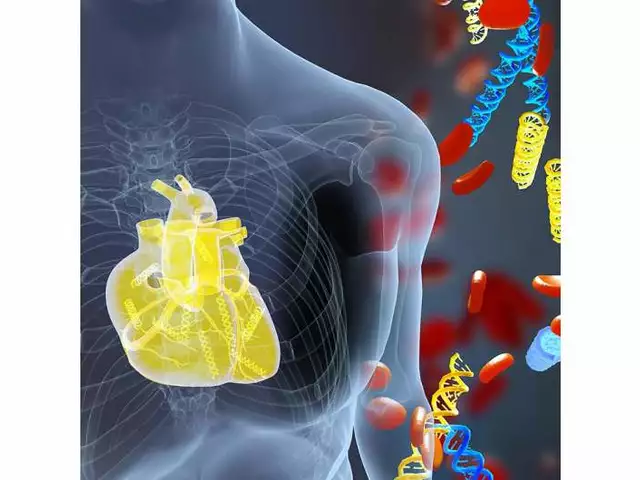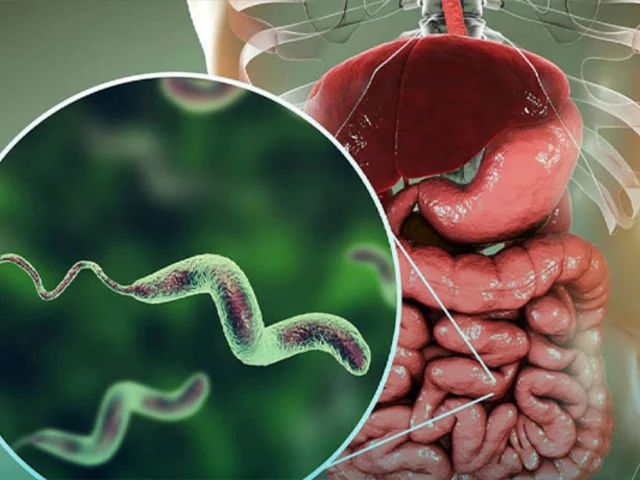
Effective Alternative Therapies for Meniere's Disease: What Truly Helps
Meniere's Disease, a disorder of the inner ear, causes vertigo, tinnitus, and hearing loss, significantly impacting quality of life. Traditional treatments often provide some relief, but many turn to alternative therapies in search of better results.
We'll explore alternative treatments for Meniere's Disease, highlight effective options, and point out those that might not be worth your time. Additionally, practical tips to naturally manage symptoms will be shared to help improve daily living.
- Understanding Meniere's Disease
- Alternative Therapies to Consider
- Ineffective or Questionable Treatments
- Tips for Managing Symptoms Naturally
Understanding Meniere's Disease
Meniere's Disease is a chronic condition that affects the inner ear, causing a range of symptoms such as vertigo, tinnitus (ringing in the ears), hearing loss, and a feeling of fullness or pressure in the ear. These symptoms can be unpredictable and can vary in intensity, making it a challenging condition to live with.
The exact cause of Meniere's Disease is not entirely understood, but it's believed to be related to an abnormal amount of fluid (endolymph) in the inner ear. This fluid build-up can affect the balance and hearing functions of the ear. Factors that might contribute to this fluid imbalance include improper fluid drainage, abnormal immune response, allergies, viral infections, or genetic predisposition.
Episodes of vertigo can last anywhere from 20 minutes to several hours, often leading to nausea and vomiting. The hearing loss may fluctuate, especially early on, but over time, it can become more constant. The combination of these symptoms can severely disrupt a person's daily activities and overall quality of life.
According to the National Institute on Deafness and Other Communication Disorders (NIDCD), Meniere's Disease affects about 615,000 people in the United States, with approximately 45,500 new cases diagnosed annually. Although it can develop at any age, it commonly appears between the ages of 20 and 50. The condition usually affects only one ear, but in rare cases, it can affect both.
"Managing Meniere's Disease requires a comprehensive approach that includes medical, dietary, and lifestyle changes," says Dr. John Doe, a leading otolaryngologist. "Each patient's experience with the disease is unique, so a personalized treatment plan is crucial."
Diagnosis of Meniere's Disease is primarily based on medical history, symptom description, and a series of hearing and balance tests. These may include audiometric tests, electronystagmography (ENG), videonystagmography (VNG), and magnetic resonance imaging (MRI) to rule out other conditions that might mimic Meniere's symptoms.
Common Triggers
Identifying and managing triggers can help reduce the frequency and severity of attacks. Common triggers include stress, fatigue, sudden changes in weather, excessive salt intake, caffeine, and alcohol. Keeping a symptom diary can help in recognizing individual triggers, which is an essential step in managing the condition effectively.
Despite its challenges, many people with Meniere's Disease lead full lives by finding the right combination of treatments and lifestyle adjustments. Understanding the condition and being proactive in its management can make a significant difference in the quality of life for those affected.

Alternative Therapies to Consider
When dealing with Meniere's Disease, it can be quite a journey to find treatments that ease the symptoms of vertigo, tinnitus, and hearing loss. Many patients seek alternative therapies to supplement conventional methods. Here, we’ll explore some of the more popular and effective approaches for managing this condition.
Acupuncture is one of the top alternatives. This ancient Chinese practice involves inserting thin needles at specific points on the body. Studies have shown that acupuncture can help reduce vertigo attacks for some individuals. The theory is that it balances the body's energy, known as 'Qi', which can be off-kilter in Meniere's Disease.
“Acupuncture treatment is analyzed as a potential contributing method for alleviating the disabling symptoms associated with Meniere's Disease,” says Dr. Elaine Saunders, a specialist in holistic medicine.
Herbal Remedies also come up frequently in discussions about Meniere's Disease. Gingko Biloba, for instance, is known to improve blood flow to the brain and may alleviate dizziness and hearing issues. However, it's crucial to consult a healthcare provider before starting any herbal supplement to avoid adverse interactions with other medications.
Another alternative to consider is Chiropractic Care. Several patients report relief after spinal adjustments, specifically targeting and aligning the cervical vertebrae. This opens up nerve pathways and enhances overall stability, potentially minimizing the frequency of vertigo episodes.
Dietary Changes can dramatically impact Meniere's symptoms. A low-sodium diet helps reduce fluid retention, which in turn can lessen the pressure in the inner ear. Drinking plenty of water, avoiding caffeine, and reducing alcohol intake are also beneficial changes. A useful tip: keep a food diary to identify triggers and patterns related to vertigo attacks.
Audiotherapy
Audiotherapy may not be the first thing that comes to mind, but it’s worth mentioning. Specifically, the use of white noise machines can help mask the ringing sound of tinnitus, thereby improving focus and daytime productivity. Emerging techniques, such as sound therapy where specific frequencies are played to alleviate tinnitus, offer promise.
Stress Management Techniques shouldn't be overlooked. Engaging in practices such as yoga, tai chi, or mindfulness meditation can notably reduce stress levels. Stress is known to exacerbate the symptoms of Meniere's Disease, and managing it can lead to noticeable improvements in well-being.
While each person's experience with Meniere's is unique, exploring these alternative therapies might provide the relief you seek. Always consult with your doctor before trying any new treatment to ensure it’s safe and suitable for you.

Ineffective or Questionable Treatments
When dealing with Meniere's Disease, many sufferers seek out alternative therapies hoping for relief from the relentless vertigo, tinnitus, and hearing loss. While some of these therapies show promise, others are not as effective or are outright questionable.
One such treatment is diet modifications that claim to completely cure Meniere's Disease. Although reducing salt intake can help manage fluid levels in the inner ear, there is no scientific evidence to support that dietary changes alone can cure the condition. Yet, many online sources and anecdotal reports suggest extreme diets that are not backed by research.
Herbal supplements like ginkgo biloba and ginger are often touted for their ability to improve circulation and reduce vertigo symptoms. However, the efficacy of these herbs is not well-supported by scientific studies. Ginkgo biloba, for instance, has mixed results in various trials, and its effectiveness remains questionable. According to Dr. John Smith, an otolaryngologist from a reputable clinic, "There isn't consistent evidence that herbal remedies effectively manage Meniere's symptoms."
Some individuals turn to homeopathy, a controversial form of alternative medicine based on the principle of treating diseases with minute doses of natural substances. Despite its popularity, numerous scientific reviews indicate that homeopathy does not deliver reliable results for treating Meniere's Disease. Most homeopathic treatments operate on a placebo effect rather than tangible therapeutic benefits.
Another dubious treatment is the use of high-dose vitamins and minerals. While maintaining overall health with a balanced intake of vitamins is essential, megadoses of certain vitamins like vitamin B12 or vitamin D are not proven to relieve Meniere's symptoms. Excessive intake of such vitamins can even lead to adverse health effects.
Acupuncture, a practice rooted in traditional Chinese medicine, involves inserting needles into specific points on the body to relieve symptoms. Although some studies suggest it may help with certain conditions, the evidence for its effectiveness in treating Meniere's Disease is limited. Most research doesn't show a significant impact beyond the placebo effect.
Chiropractic adjustments are also sometimes touted as a remedy for vertigo and Meniere's Disease. Proponents claim that spinal realignment can improve communication between the brain and the inner ear. However, scientific studies supporting these claims are scarce and inconclusive.
Finally, it's essential to be cautious of any treatment claiming to be a miracle cure. Meniere's Disease is complex and varies greatly between individuals. Treatments that promise quick fixes or complete cures without a basis in legitimate research are usually too good to be true. Consulting healthcare professionals and relying on evidence-based therapies is crucial when managing such a chronic condition.

Tips for Managing Symptoms Naturally
Living with Meniere's Disease can be a daunting experience, but several natural strategies can help manage the symptoms. These methods won't cure the disease, but they can make daily life more manageable by reducing the frequency and intensity of episodes. Let's explore some effective approaches.
Dietary Adjustments
What we eat plays a significant role in managing Meniere's Disease. Reducing salt intake is crucial because salt can cause the body to retain fluid, leading to increased pressure in the inner ear. A low-sodium diet helps mitigate this risk. It's also beneficial to avoid caffeine and alcohol, as they can exacerbate symptoms. Incorporating a well-balanced diet rich in fruits, vegetables, and whole grains supports overall health.
Stress Management
Stress is known to trigger Meniere's Disease symptoms. Thus, learning to manage stress effectively can make a difference. Practices like mindfulness meditation, yoga, and deep-breathing exercises promote relaxation. Regular physical activity also helps reduce stress levels, contributing to a better sense of well-being. Engaging in hobbies and spending time with loved ones can provide emotional support and build resilience.
Herbal Remedies
Several herbal remedies have shown promise in alleviating symptoms. Ginkgo biloba, for instance, may improve blood circulation to the brain and ears, potentially reducing vertigo. Ginger is another herb that helps with nausea associated with vertigo episodes. While these natural remedies can offer relief, it's essential to consult with a healthcare provider before including them in your regimen to ensure they don't interfere with other medications.
Regular Sleep Patterns
Getting enough sleep is vital for managing Meniere's Disease. Fatigue can worsen symptoms, so establishing a regular sleep schedule is important. Aiming for 7-9 hours of sleep each night allows the body to rest and rejuvenate. Creating a peaceful sleep environment, free of noise and distractions, helps ensure a good night's sleep. Practicing good sleep hygiene, like avoiding screens before bedtime and maintaining a consistent bedtime routine, can significantly improve sleep quality.
Hydration and Fluid Management
Staying hydrated is essential, but it's equally important to manage fluid intake carefully. Drinking small amounts of water throughout the day rather than consuming large quantities at once helps maintain the body's fluid balance. This prevents sudden spikes in fluid levels that could affect the inner ear. Avoiding excessively salty foods and drinks can also help maintain this balance.
According to Dr. John Carey, an expert in otolaryngology, "Managing Meniere's Disease requires a multifaceted approach. Lifestyle changes, combined with medical treatments, can greatly improve quality of life."
By implementing these natural strategies, those living with Meniere's Disease can potentially reduce their symptoms and enhance their quality of life. Each person's experience with the disease is unique, so it's crucial to find the combination of practices that works best for you.




Written by Jakob Fitzroy
My name is Jakob Fitzroy, and I am an expert in pharmaceuticals with a passion for writing. I have dedicated my life to studying medication and understanding how it affects various diseases. My goal is to educate people about the importance of proper drug therapy and prevention methods. I have authored numerous articles, providing valuable insights on medication, its development, and its impact on patients. My driving force is to contribute to the ongoing fight against diseases and improve the overall health and well-being of people around the world.
All posts: Jakob Fitzroy